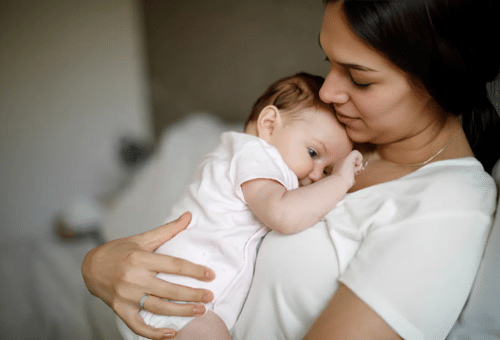Regarding Int. No. 1063-2016 – Requiring Lactation Rooms in Certain Public Spaces
By Amber Star Merkens, March 30, 2016
MMBNE was invited to testify before New York City Council’s Committee on Women’s Issues regarding proposed legislation to establish lactation rooms for members of the public accessing health and social services, or otherwise receiving public services from the City. This is our testimony.
My name is Amber Star Merkens, and I am the New York Outreach Coordinator for Mothers’ Milk Bank Northeast (MMBNE) as well as a post-partum doula in Brooklyn. MMBNE respectfully submits this testimony on lactation rooms in certain public spaces in New York City and thanks the Committee on Women’s Issues, Brooklyn Borough President Eric Adams, Council Member Robert Cornegy, and the rest of the bill’s sponsors for the opportunity to testify today.
MMBNE is a non-profit community milk bank, registered under FDA and certified by the Human Milk Banking Association of North America. We are in 11 states plus Washington, D.C. In New York, we provide pasteurized donor human milk to 17 of the roughly 20 hospital NICUS that provide it; 7 of which are in New York City. Last year alone, we distributed 55,350 ounces of milk to fragile babies across New York State.
We urge the Council to support this bill providing lactation rooms in public spaces through out the city and believe that the public and city employees alike deserve appropriate space in which to pump or breastfeed, while recognizing that legally mothers have a right to breastfeed in any public location where they are otherwise authorized to be.
Supporting public breastfeeding and pumping are important to me personally and I am honored to share why. As a New York mother and the mother to a child born three months premature, I know intimately the impact that lack of public support for pumping and nursing has. I was told that my very sick baby would have a better outcome if I provided her with my milk instead of formula. She particularly needed it to heal her intestines after surgery from necrotizing enterocolitis, and to combat sepsis. I pumped every three hours daily until she came home six months later. When I was not home or in the hospital, it became extremely difficult. It often felt as if I was engaged in a shady activity, expressing my baby’s much-needed milk in dirty bathrooms, behind tinted car windows, and in dark corners. Literally everywhere but a clean, comfortable, accessible room. With such adversity, it might have been easy to give up, but thankfully I didn’t.
I want other women to be able to provide nourishment and medicine for their own babies without enduring what I did. I want this bill to become law.
Breast milk is an important public health priority, particularly for premature and otherwise fragile babies, but stressing that importance needs to be expressed through action such as this bill. Lactation rooms are critical for enabling mothers to pump or breastfeed outside the home. Breast milk is so important that in 2012, the American Association of Pediatrics stated, “If mothers’ own milk is unavailable, despite significant lactation support, pasteurized donor milk should be used.” (https://pediatrics.aappublications.org/content/pediatrics/early/2012/02/22/peds.2011-3552.full.pdf)
Premature babies who receive breast milk are nearly 80% less likely to develop the life threatening disease of necrotizing enterocolitis (NEC). They are also significantly less likely to contract retinopathy of prematurity (ROP), which can cause blindness, and they receive multiple other health benefits. Breast milk is not simply nourishment, it is medicine.
If unable to breastfeed or otherwise separated from her baby a mother must pump milk in order to secure her milk supply. Enabling mothers to pump is physiologically important because it helps ensure adequate milk demand and supply.
Providing public lactation support is also a matter of equity. In 2008, according to the CDC, only about 59 percent of African American mothers had ever initiated breastfeeding and about 75 percent of white mothers. We see similar disparities in prematurity rates. According to the March of Dimes, in 2015, the prematurity rate was 12.5% among African Americans and 8% among Whites. (https://www.marchofdimes.org/materials/premature-birth-report-card-new-york.pdf)
A recent study even shows that hospitals with more Medicaid recipients are less likely to use donor milk than others. (Parker M, Barrero-Castillero A, Corwin B, Kavanagh P, Belfort M, Wang J. Pasteurized human donor milk use among US level 3 neonatal intensive care units. J Hum Lact. 2013;29(3):381-389)
Increasing the number of NICUs providing donor milk and providing Medicaid and health insurance coverage for outpatients would go a long way to meeting the needs of fragile babies for all kinds of families.
Prematurity and breastfeeding rates reflect access by babies to the health that breast milk gives, and they have a profound and lasting impact on maternal child health. Public health campaigns and awareness raising alone can’t increase equity. Mothers need support and, most importantly, access, such as that provided by the proposed bill for lactation rooms in certain public spaces.
In summation, we thank everyone again for this important legislation. Public lactation rooms are an important step toward building equity in breastfeeding rates, prematurity rates and public health at large. We urge the Council to embrace this bill wholeheartedly, to continue to do more to promote breastfeeding and breast milk, and to protect and support the mothers who provide it. We cannot do it all alone.








